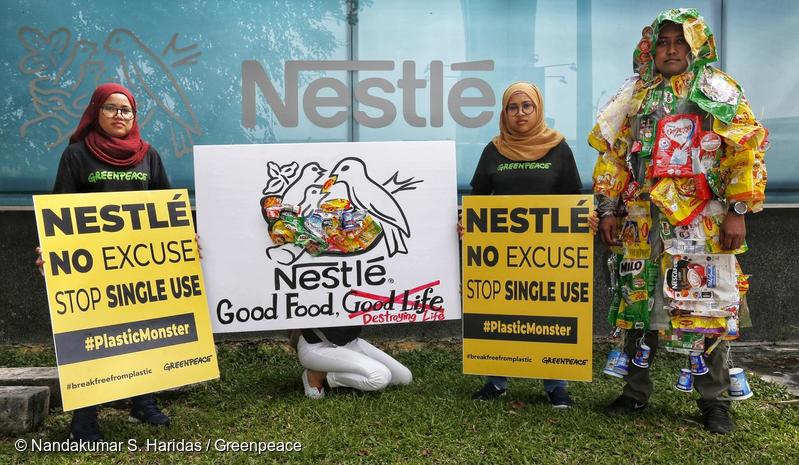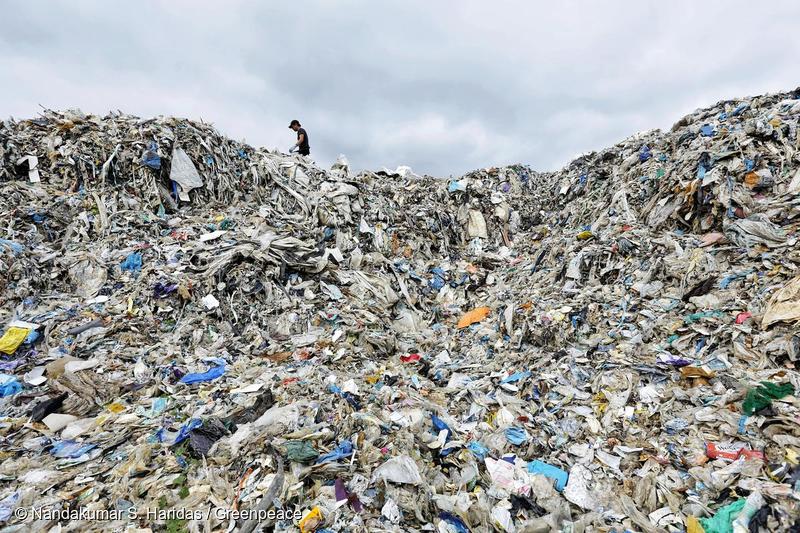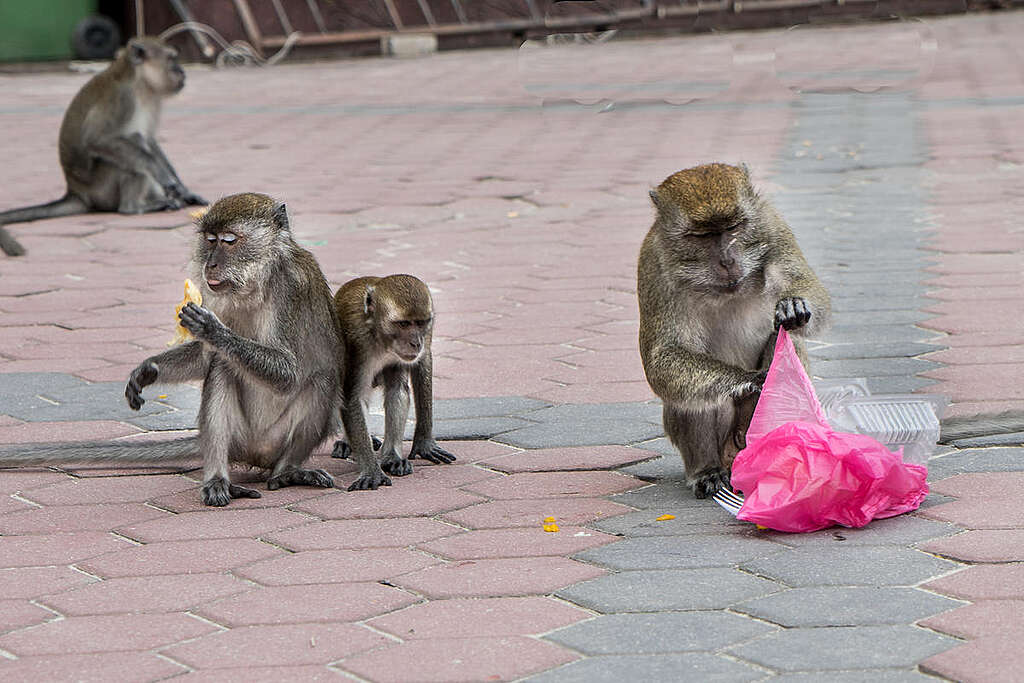Our world is being destroyed by throwaway plastic. Plastic pollution has flooded our planet, harming people’s health, accelerating social injustice, destroying biodiversity and fueling the climate crisis.
Plastic is just fossil fuel in disguise
The fact is that 99% of plastic is made from oil and gas — and Big Oil like Exxonmobil are contributing to making more and more plastic each year. According to new research released a few weeks ago, plastic use in G20 nations will almost double by 2050. If industry has its way, plastic production could actually double well before that.
The full lifecycle of plastic harms livelihoods and the climate every step of the way. Plastics also pose distinct risks to human health at every stage of their lifecycle, arising from harmful chemicals released during raw material extraction and manufacturing, exposure to chemical additives during use, and the pollution of the environment and our food that can result as plastics enter the waste stream.
Despite all of this, Big Oil, in league with big brands like Unilever, Nestlé and Coca-Cola, continues to promote false solutions and a throwaway single-use model where ‘convenience’ and corporate profits outweigh the cost to our communities.

The Global Plastics Treaty is a once in a lifetime opportunity
But the good news is that we have a once-in-a-lifetime opportunity to end the plastic crisis. The negotiations for a Global Plastics Treaty began in 2022 and we now have until 2024 to ensure it is strong and ambitious.
To end the plastic and climate crisis, we need a Global Plastics Treaty that will:
- End plastic pollution across the whole life-cycle to protect the environment and human health
- Cap and phase down of plastic production, including a phase out virgin plastic production
- Ensure a just and inclusive transition to a low-carbon, zero-waste, toxic-free, reuse-based economy
- Be firmly rooted in a human rights-based approach that reduces inequalities between people, prioritises human health, protects the environment and centers justice and the interests of communities most affected
Together with our allies and supporters, we demand a treaty that will keep oil and gas used to produce plastic in the ground and put an end to big polluters’ relentless plastic production. Because a treaty that fails to deliver major reductions in plastic production and use will not solve the runaway plastic catastrophe that is already having devastating impacts on people and our planet.
An effective Global Plastics Treaty means a future free from single-use plastics in the food we drink, in the air we breathe, in nature and ensures a safer environment for the next generations.

We expect that the petrochemical industry, corporations and some governments will try to weaken the ambition of the Global Plastics Treaty, and here is where the battle truly begins.
Along with our supporters and partners, we will show how an unstoppable global movement can achieve an ambitious Global Plastics Treaty that will turn off the plastics tap and finally end the age of plastic — for our health, our communities, our climate, and our planet.

Ask world leaders to support a strong global plastic treaty that addresses the whole life cycle of plastic.
Graham Forbes is the Global Plastics Campaign Lead for Greenpeace USA.
